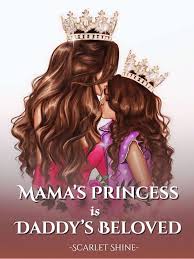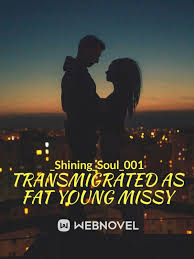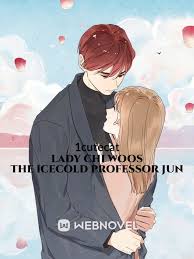The Story in 3 Sentences
Li Xue, a hardworking model from a modest background, faces public scandal and personal turmoil when she discovers she is pregnant amid accusations threatening her reputation and career.
A dramatic shift occurs as powerful figures like CEO Feng Yi Lan and the enigmatic Chen Rui enter her life, revealing hidden connections, layered motives, and a past that binds them in unexpected ways.
The story moves toward emotional resolution and empowerment as Li Xue navigates love, betrayal, and identity, ultimately claiming her place not as a victim but as a woman who redefines strength on her own terms.
Why It Stands Out
1. From Runway to Royalty
The novel masterfully blends urban realism with fairy-tale undertones, turning a model’s everyday struggles into a high-stakes emotional odyssey where every catwalk moment could be a battlefield.
2. Love as a Labyrinth
Rather than offering a simple romance, the story constructs love as a complex maze—filled with CEO intensity, maternal echoes, and psychological depth—where affection is both weapon and shield.
3. The Pregnancy That Shook a Dynasty
The early pregnancy reveal isn’t just a plot twist; it becomes the gravitational center of the entire narrative, pulling in secrets, power plays, and generational reckonings that keep readers hooked for over 1500 chapters.
Characters That Leave a Mark
There’s Feng Yi Lan – the icy CEO whose Antarctic-level office demeanor hides a devotion so fierce it borders on obsession, and whose presence alone can freeze or thaw Li Xue’s world in an instant.
You’ll meet Chen Rui, who moves through the story with sharp wit and quiet authority, acting as both confidante and challenger, her loyalty laced with unspoken history and strategic insight that often shifts the tide.
And Li Wei Young? They’re the one who emerges as a symbolic figure—referred to as “Princess” in fan discussions—representing the legacy and vulnerability that Li Xue must protect, embodying the title’s promise of cherished belonging.
The Flaws Fans Debate
Some readers criticize the repetitive nature of misunderstandings that prolong conflict well beyond believability, especially in the mid-to-late chapters.
Others point to the uneven pacing, where emotional climaxes are sometimes undercut by sudden jumps in time or abrupt resolution of major tensions.
A recurring complaint in fan reviews is the overuse of pregnancy and virginity-test tropes, which, while dramatic, can feel dated or unnecessarily sensationalized in a modern josei context.
Must-Experience Arcs
Ch. 1–50: The Scandal Breaks – Li Xue’s world collapses when false accusations surface, culminating in the shocking pregnancy diagnosis that sets the entire saga in motion.
Ch. 700–750: Blooming Since Childhood – A reflective arc that delves into Feng Yi Lan’s past and his long-standing connection to Li Xue, revealing that their bond was never accidental but carefully woven over years.
Ch. 1450–1505: Two Halves of a Perfect Whole – The final chapters resolve lingering mysteries, affirm Li Xue’s autonomy, and close the story with a quiet yet powerful image of unity, not dependency.
Killer Quotes
“Ms. Li Xue, you are pregnant!”
“Her efforts came out beautifully.”
“Not to prove their love, but the proofs to make you realize their love.”
Cultural Impact
The line “Ms. Li Xue, you are pregnant!” became a viral meme across romance novel forums, often used to parody dramatic plot twists in other web novels.
Readers on Webnovel and Novelhall consistently rate it above 4.4 stars, praising its emotional consistency despite its length.
Fan fiction and alternate-ending theories flourished on platforms like Wattpad and Reddit, especially around Chen Rui’s ambiguous loyalties and the true paternity timeline.
Final Verdict
Start Here If You Want:
A sweeping emotional journey where vulnerability transforms into unshakable strength.
A romance that feels grand yet intimate, blending CEO intensity with maternal warmth.
Over 1500 chapters of steady, addictive storytelling that rewards long-term readers with payoff, not filler.
Study If You Love:
The evolution of the “weak to strong” trope in josei fiction, particularly how female agency is reclaimed through crisis.
Narratives that use pregnancy not just as drama but as a lens to examine class, reputation, and legacy in urban Chinese society.
The interplay between public perception and private truth—a theme echoed in modern media but rendered here with novelistic nuance.
Avoid If You Prefer:
Fast-paced plots with minimal melodrama or repetition.
Stories that avoid tropes like virginity tests, sudden inheritances, or CEO saviors.
Narratives where romantic resolution requires clear moral binaries—this novel thrives in gray areas and emotional ambiguity.





